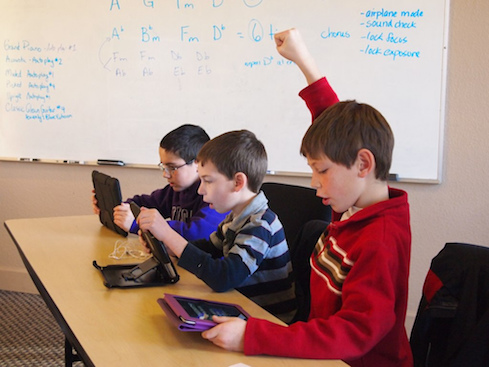Getting in the Learning Zone

January 19, 2018
“If a child can’t learn the way we teach, maybe we should teach the way they learn.”
Ignacio Estrada
How do you learn best? It’s an interesting question, especially as we try to answer it as adults. If given the choice, what would the conditions be, the environment in which you would learn best? You can even think back to when you were a child, a student in class. The same question is relevant… under which conditions did you learn best?
We feel this question is so important that we revisit and discuss it on a consistent basis, both leaders and teachers. District 142 believes understanding the way our students learn is key to their success. The answer or answers remain fluid as we recognize the uniqueness of each child who enters our school buildings. And with educational research and methodology continuously changing and updating, we recognize that the answer(s) we come up with today, may be different than five or ten years from now. Add to that the uniqueness of each child at any given time.
Still, thers are some basic facets of customized instruction and learning that we can pose. Are we setting the right conditions by which our students will optimally learn? In the book Flow, the author speaks of being in the “zone,” or in the “flow.” Performers, athletes, musicians, etc. rarely think of the upcoming Algebra test as they are diving for the end zone or hitting a difficult note in front of a large audience — they are wholly committed to the task at hand. Hopefully, everyone gets to experience that sense of being “in the zone” or experiencing a good “flow” when working through a task, learning something new, or working out a problem. It feels good to sense and even say out loud, “I’ve got this!”
District 142 wants every student to have that moment. Our team began developing the recipe years ago to take the time to get to know our students on a personal level and then to use this information to purposefully and intentionally plan lessons with this information in mind. The idea isn’t new, it’s just effective. But it takes consistency and like any recipe, it requires adding new or taking away ingredients to ensure the best outcome. Even if it takes us as the educators out of our comfort zone. If students have an individualized, customized stake in the learning taking place, they will be better engaged, retain more information, and perform better in school.
I learned best from the teachers who took the time to know me. I also learned best from the teachers who intrigued me, challenged me, and ultimately offered a degree of individualized freedom to demonstrate what I learned, and how I arrived at the answer. Most importantly, I learned best from the teachers who drew a tangible connection between the curriculum and how it related to me, personally — made learning relevant to real life. By keeping these thoughts in mind, we stand the best chance to help our students be the best learners they can be.